Soaring Titan Labs - Breathe life into a team of AI agents with a single thought
AI Agents can do much more than a simple chat interface can accomplish, but they are challenging to build. Our new project can create an entire orchestration with a simple natural language prompt.
- Codename
- Promethia
- Year
- Service
- AI Agent Orchestration
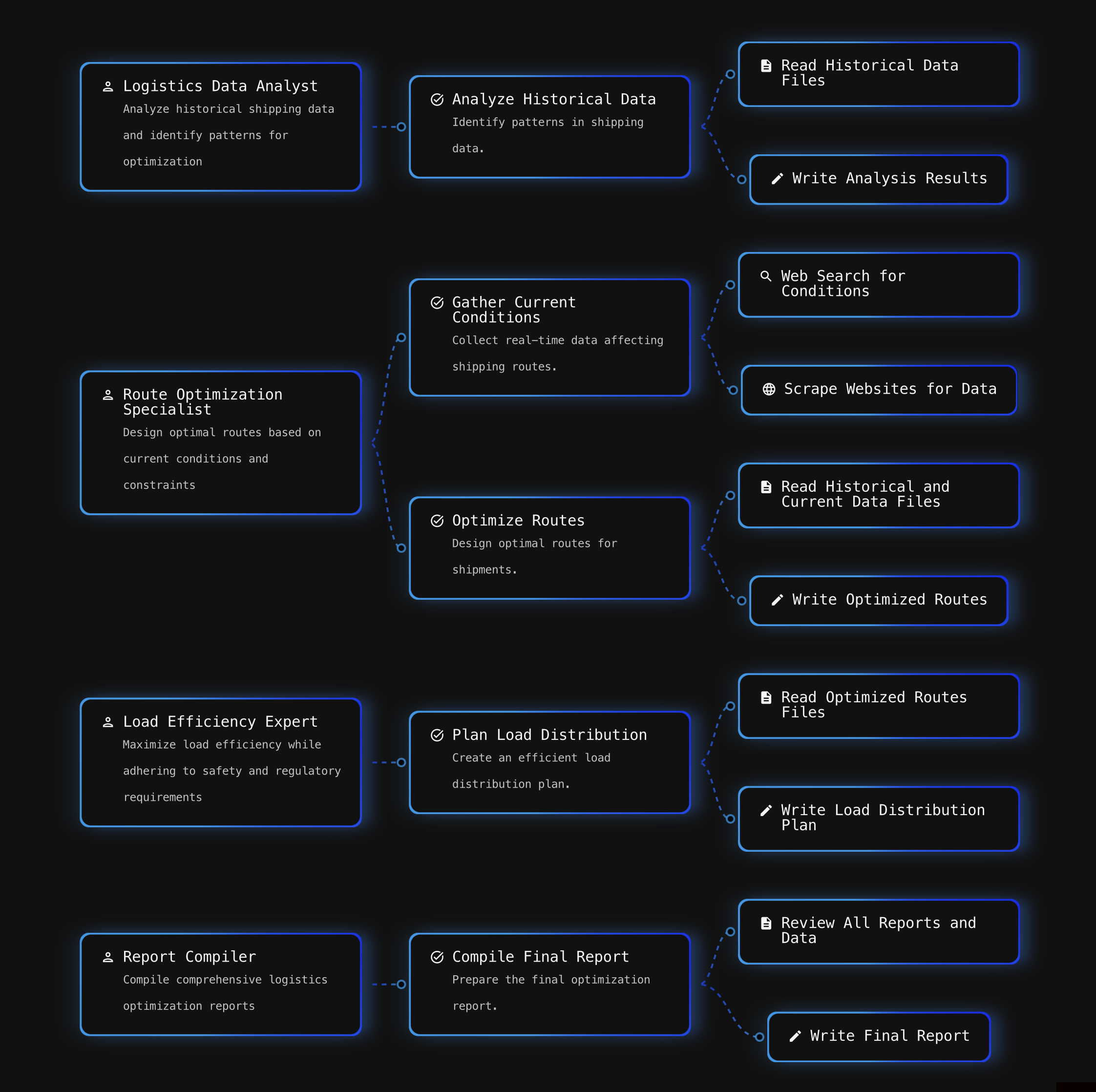
Chat vs Agents
The current group of large language models and the chat interfaces connected to them are getting more powerful every day. They are starting to add more features within their chat interfaces like file uploads, code interpreters, and some of them have the ability to check a few websites prior to answering a prompt. But, they still almost always follow a simple prompt then answer pattern.
In contrast, agents can follow a multi-step process to produce far better results than you can get with a simple zero-shot prompt. Here is a slide from a recent presentation by Andrew Ng on the topic:
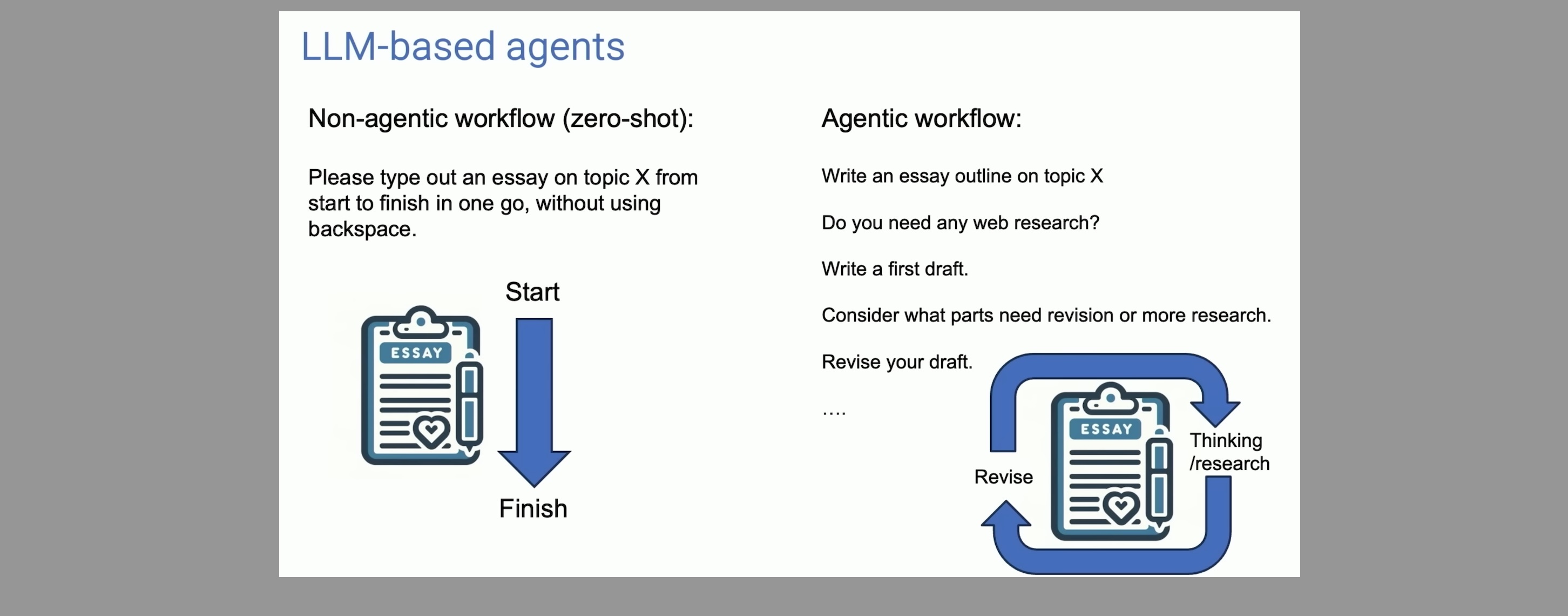
Agentic patterns like this perform better than chat in numerous ways since they can reflect on their past answers, use the tools provided to them, plan out their tasks prior to completing them, and collaborate with other agents. Each of these 4 elements is scientifically proven to provide better results. The video linked above has links to the sources of that research if you are interested in learning more about agentic workflows.
Agent Orchestration
We have been using agentic workflows for months now to complete work for our clients and for ourselves. There are various open source agent-focused projects out there like AutoGen, LangGraph, etc. The challenge is: Building out a team of agents, tools, and tasks takes a significant amount of development time. Right now you need to do that for any specific problem you need to solve. So, we have built our own agent framework that incorporates the best of the current open source technology and improves it so that it can be deployed in mission critical business scenarios.
As we have been building out orchestrations of agents in our internal framework, we identified a way to reduce the upfront time by orders of magnitude. This is the first time we are sharing what we internally refer to as Promethia.
Promethia
Here is an example of what you can do with it. Let's assume you run a trucking company and want to analyze some of your internal data and be prepared for future shipments in the next week or so.
Here is what you would tell Promethia:
"I run a shipping/trucking company. I would like to optimize our routes and loads during the next 7 days. Road construction and severe weather often impact our routes. Here is some historical data that I have on our shipments. Our shipments over the next 7 days will most likely match our history. We just need to figure out the best way to handle them."
Here is some of the data you provide to it with the prompt:
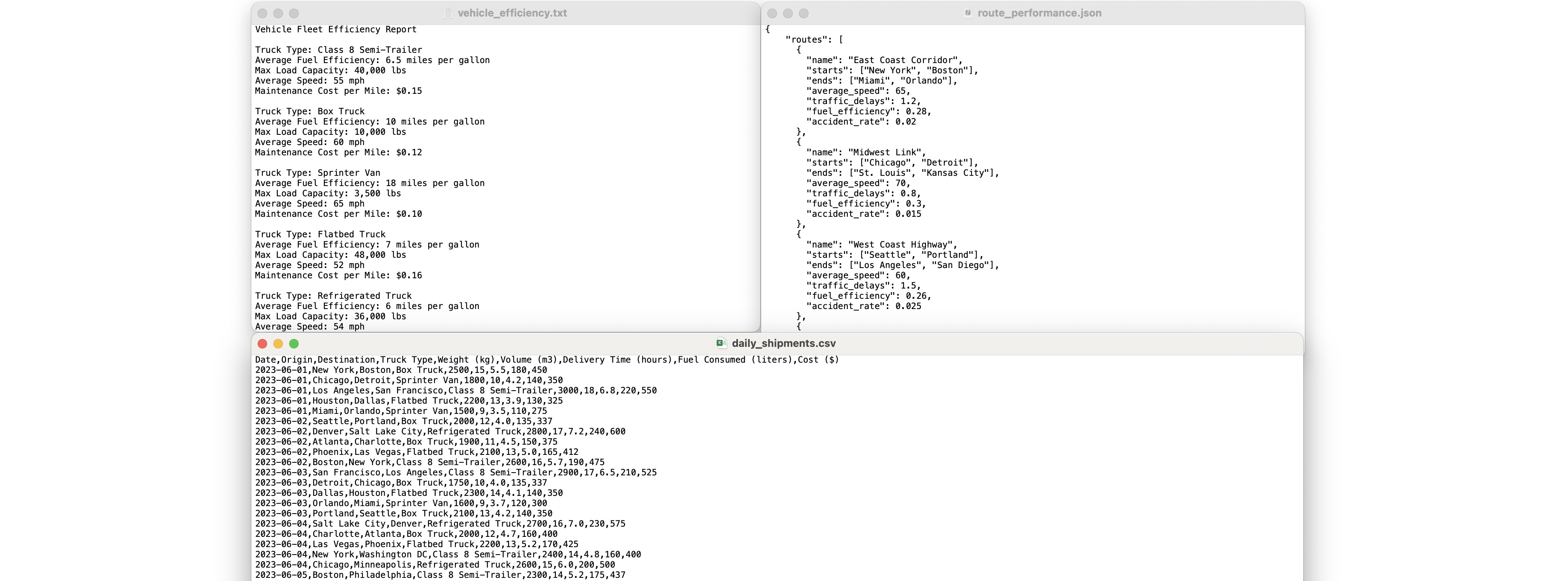
Promethia will take that prompt and data and turn it into a full team of agents that can independently go out and help you answer your question. These agents can run on different LLMs depending on the need and will figure out which tools they need to complete the job.
Here is a visual of what that orchestration looks like:
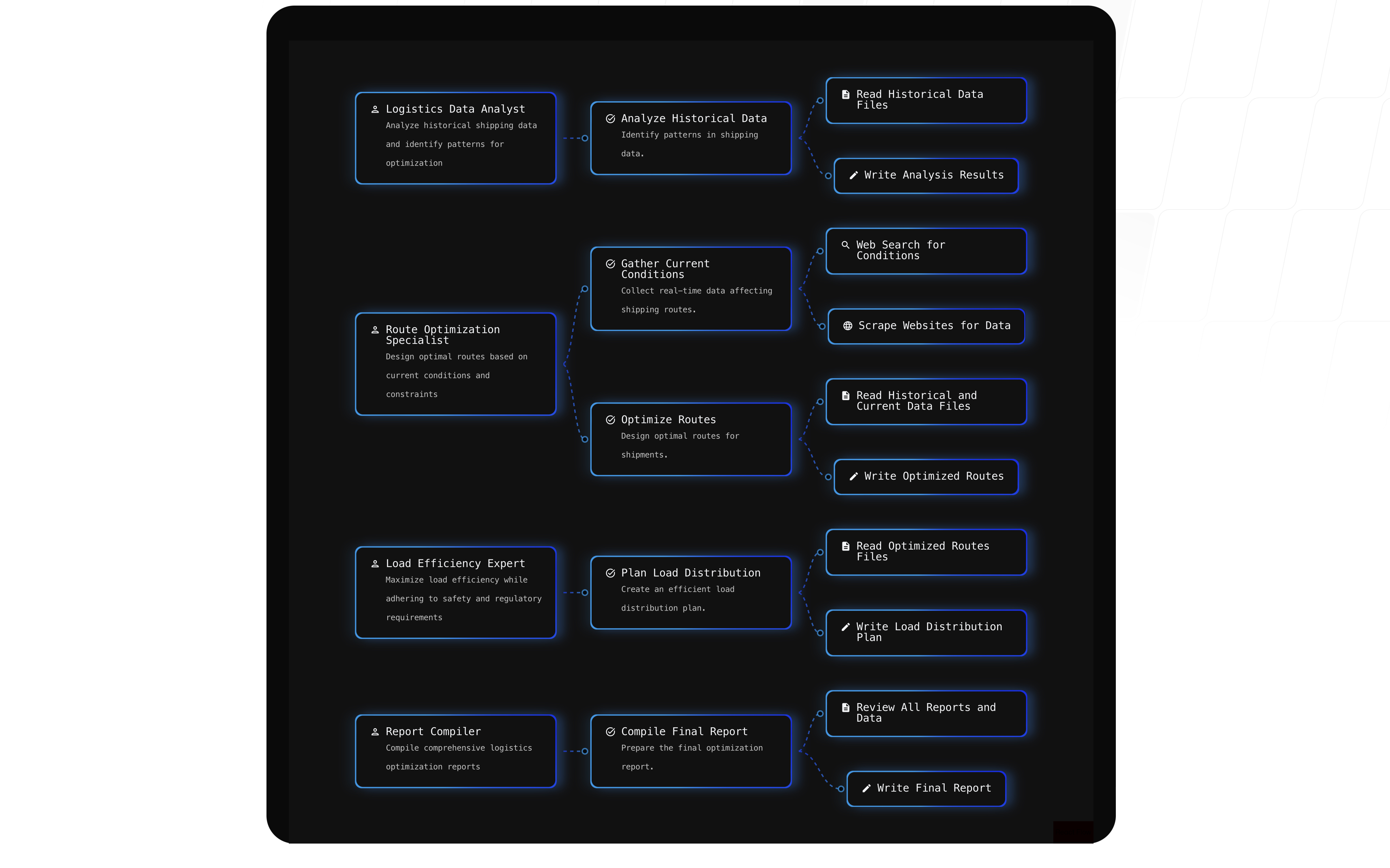
In this example, the team used OpenAI's gpt-4o as its base LLM. It analyzed the uploaded files, performed multiple web searches, visited numerous websites, wrote initial reports, then produced a summary reports. The agents collaborated with one another, shared information, and produced a much more detailed and grounded result than what you could get with any single session with a chat interface. It only took 4 minutes to run.
Here are excerpts from the reports it produced:
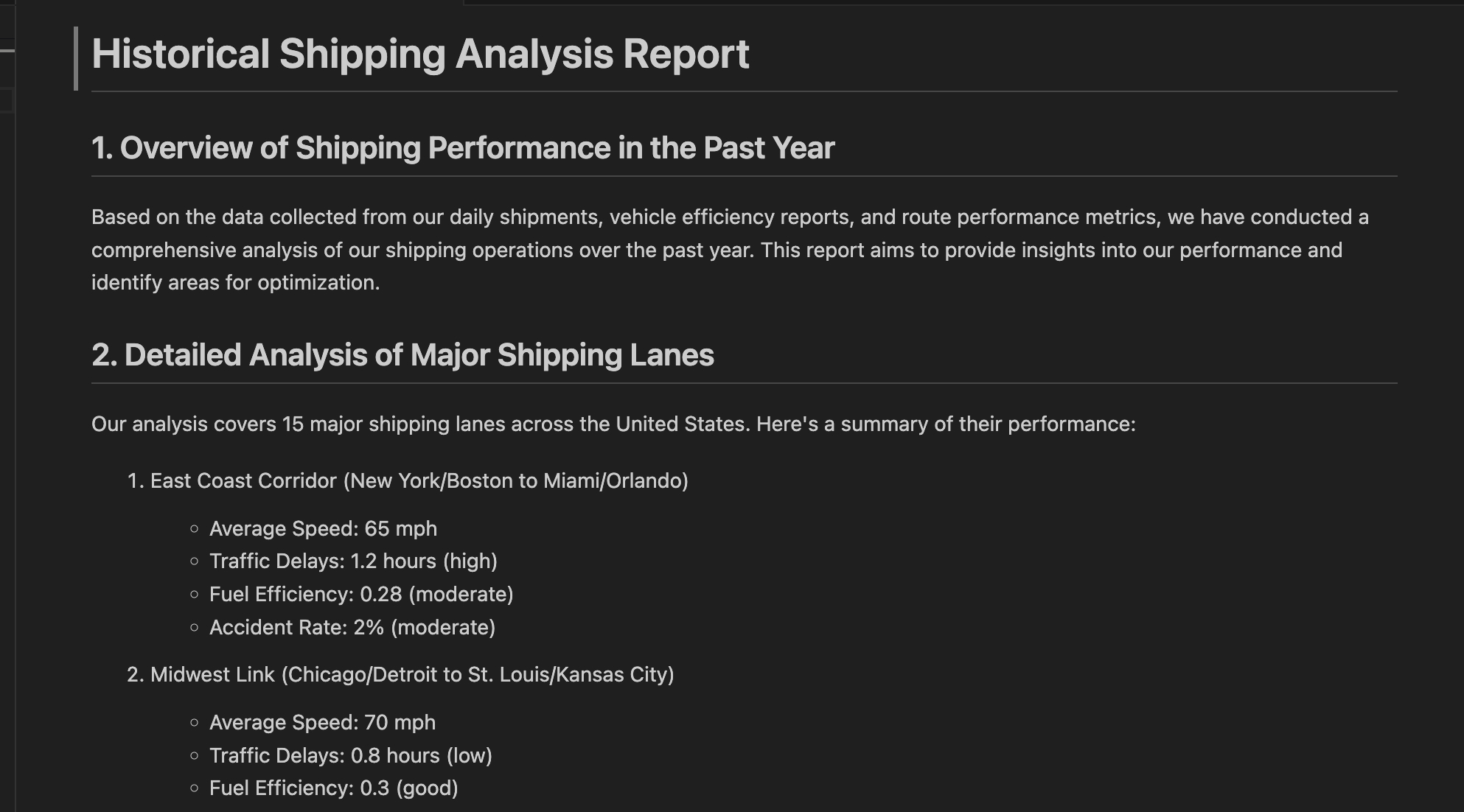
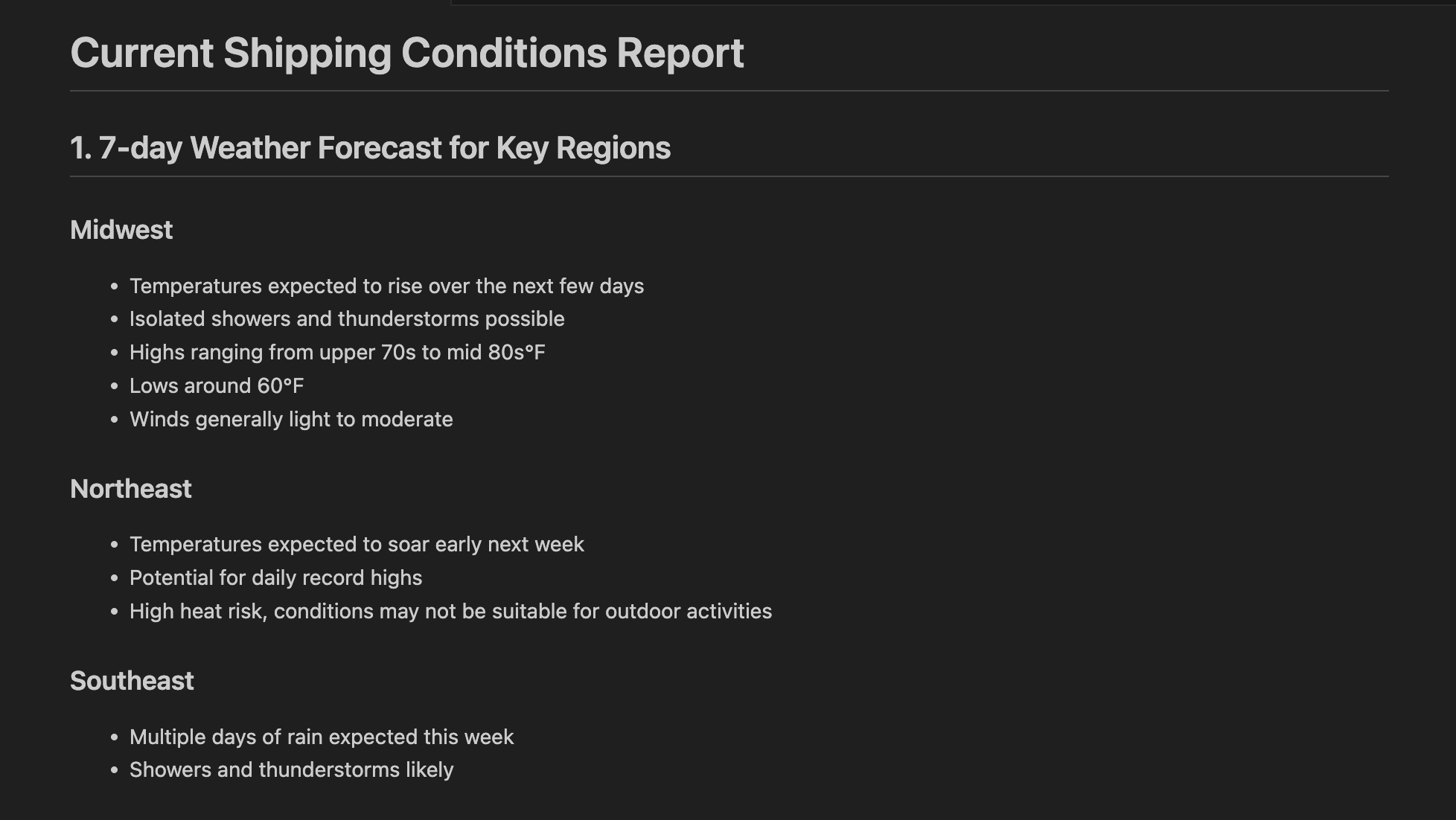
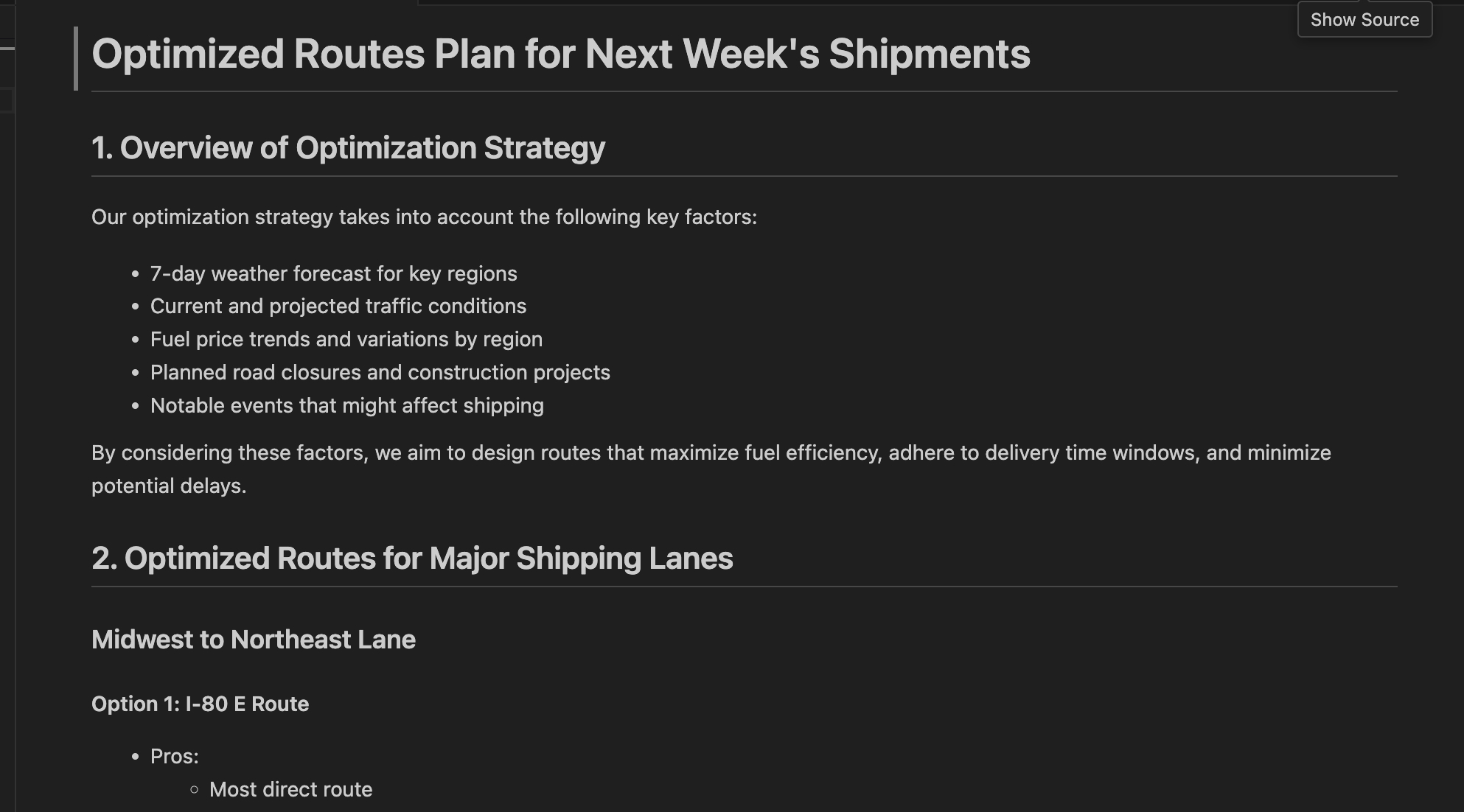
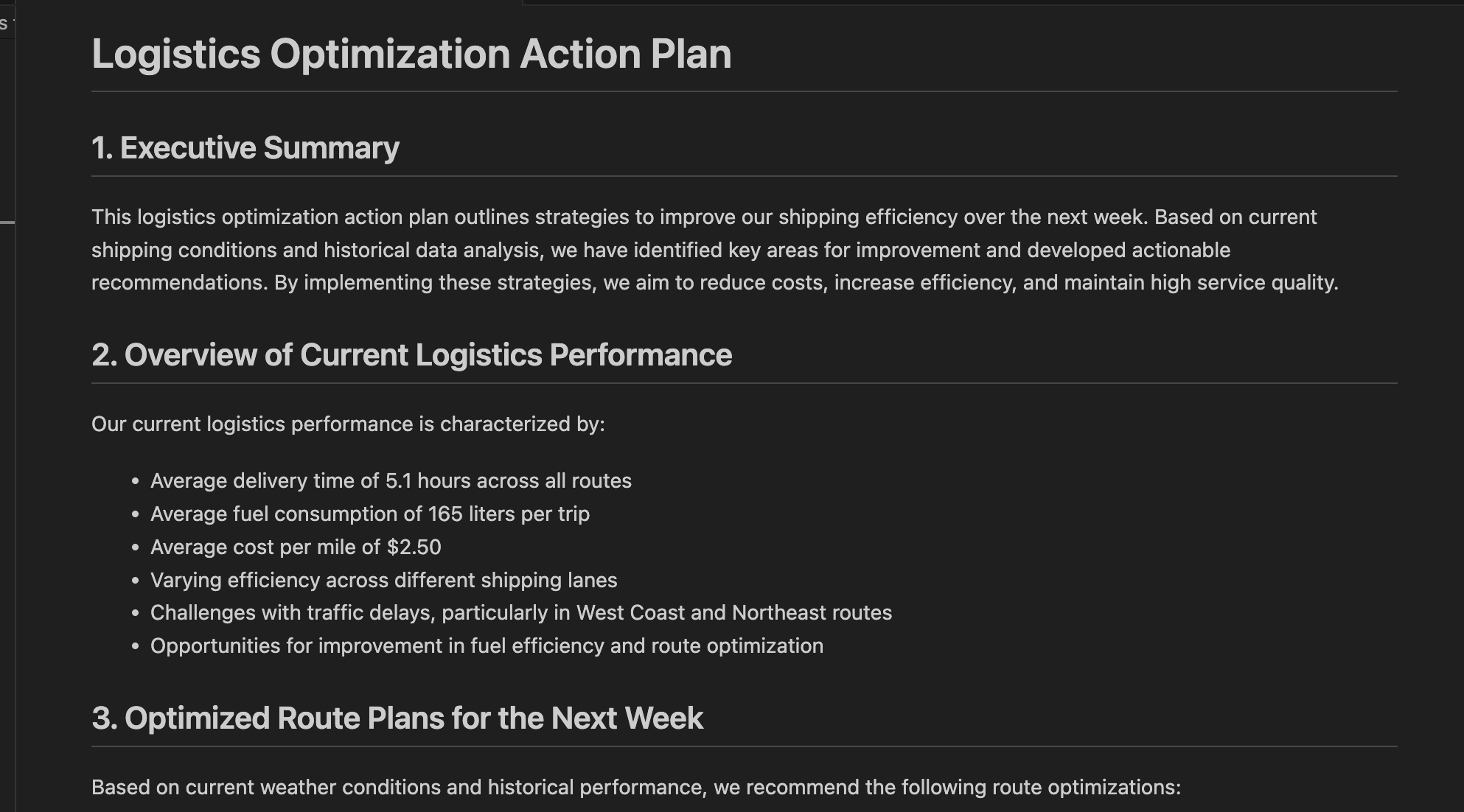
Of course, this is just an example situation so that you can see how agents can use tools, internal data, and multiple iterations to get a job done. The real power for businesses comes from connecting these agents to some of your internal systems and data. We would love to discuss this with you if you want to learn more.
Another Example
Here is another quick example to show you how Promethia can take a thought and turn it into an agent orchestration.
Imagine you are in the market for new vehicle. Here is what you might tell Promethia: "I want to find ten good examples of 2020 Toyota Land Cruisers that are currently for sale. I would like to have the key details of the used cars along with a photo. Also provide a summary description of what you think it is priced at compared to others in the market."
It then produces this agent orchestration:
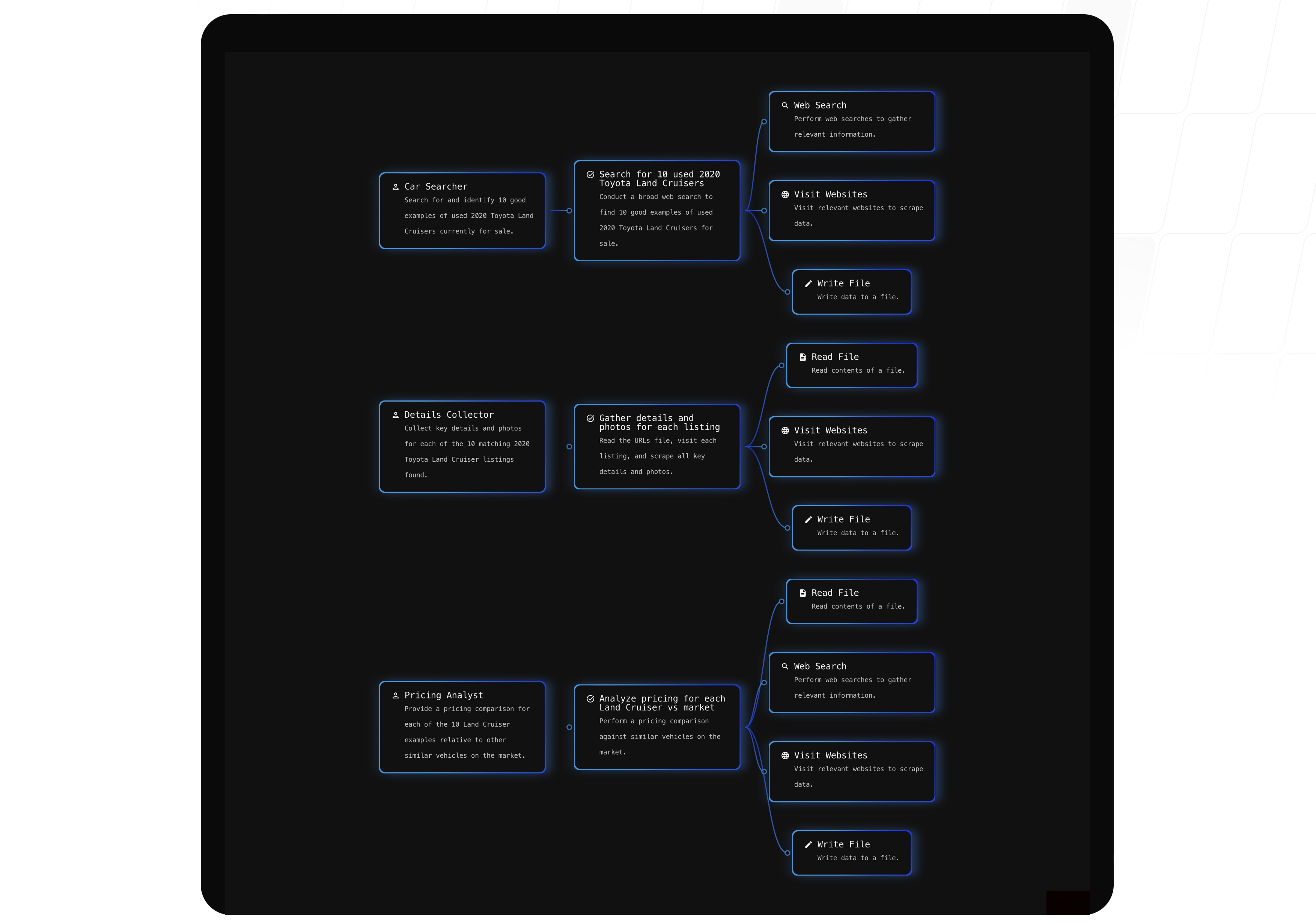
It produces multiple agents, tools, and tasks along with a final product from just a couple of sentences. This process can be run as many times as you would like and a very minimal cost.
We think the agentic workflows are going to be one of the most critical tools used in getting work done in the future. The great thing about these workflows is, as the models get smarter the results only improve.
Let us know what you think. We will be writing more about how we are using this tool in the future.
AI agents will become an integral part of our daily lives, helping us with everything from scheduling appointments to managing our finances. They will make our lives more convenient and efficient.
